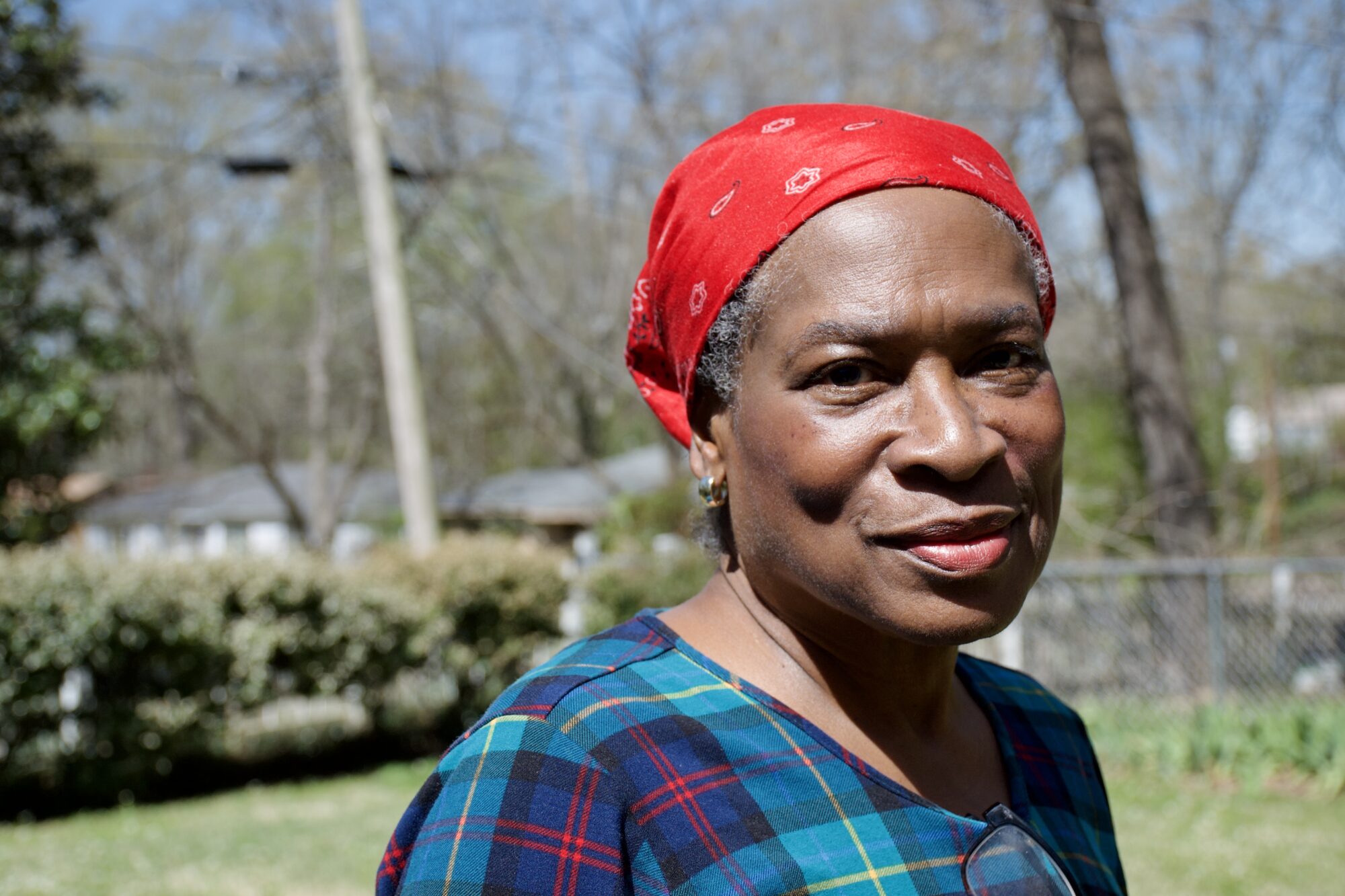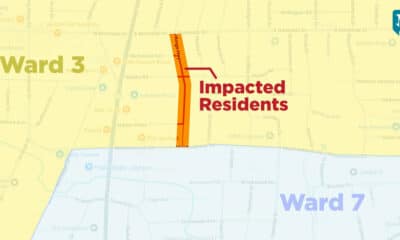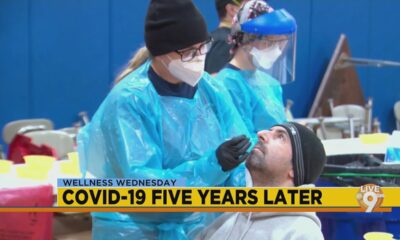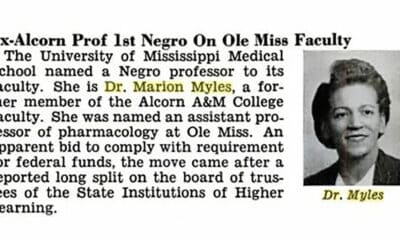Mississippi Today
State, MS Power extend life of coal unit to energize data centers

Last week, the state Public Service Commission unanimously approved a special contract that will extend the life of a Mississippi Power coal unit in order to meet energy demands for a recently announced data center project in Meridian.

Gov. Tate Reeves announced last month a $10 billion investment from Compass Datacenters. The Dallas-based company will build eight centers, and in exchange will receive multiple tax exemptions, Mississippi Today reported. The project will be located within the Mississippi Power service area. The utility, a subsidiary of Southern Company, serves 192,000 customers in the southern and eastern parts of the state.
Following a 2020 directive from the PSC to get rid of excess generation capacity, Mississippi Power initially planned to close the two coal-powered units at Plant Victor J. Daniel — in Jackson County, about 10 miles north of Moss Point — by 2027. In 2023, though, the utility pushed the retirement date back a year in order to support demand needs for its sibling company, Georgia Power, Grist reported.
Then on Jan. 9, Mississippi Power informed the PSC that, in order to power the Compass Datacenter facilities, it would have to delay closure of at least one of the coal units, as well as “potentially other fossil steam units,” until the mid-2030s.
Central District Public Service Commissioner De’Keither Stamps told Mississippi Today that the PSC’s job is to meet demand, and that until Mississippi Power has the option to include nuclear power in its arsenal, “we’re going to need all the power we can get in that service area.”
“We can’t stop economic development because we’ve got to wait, you know, 15 years for some nuclear power in the service area,” Stamps said.

Throughout the last couple decades, the country has moved away from coal as an energy source because of its contribution to global warming but also because of air and water pollution associated with coal-burning facilities. A 2023 study from George Mason University, the University of Texas and Harvard University found that exposure to fine particulate pollutants known as PM2.5 from coal plants contributed to 460,000 deaths around the country between 1999 and 2020, twice the mortality rate of PM2.5 exposure from other sources.
Sen. Jeremy England, R-Vancleave, whose district includes Plant Daniel, called the facility a “fixture of our community” because of the jobs and tax revenue it provides. He said he wasn’t aware of any health concerns related to air emissions from the plant.
“I don’t hear from any constituents that say, ‘Hey, we don’t want this here,’” England said.
England added that Plant Daniel retiring units could potentially hurt its tax assessment, meaning less revenue for public needs like the local school district. He also pointed to emission “scrubbers” that Plant Daniel and other coal facilities have added in recent years. The same 2023 study found that scrubbers have dramatically decreased sulfur dioxide emissions as well as air pollution-related deaths.
In addition to Compass Datacenters, Mississippi Power also entered into a special contract to supply power for a plywood manufacturer, owned by Hood Industries, in Beaumont, Mississippi.
The two deals, a spokesperson for Mississippi Power said, necessitate keeping the coal and other units set for retirement alive.
“We are committed to keeping the Mississippi Public Service Commission and our customers up to date and will present additional details in our upcoming 2025 Mid-Point Supply-Side Update,” spokesperson Jeff Shepard said via email. “These incredible economic development projects will create a significant number of jobs and bring billions of dollars of investment to southeast Mississippi.”
This article first appeared on Mississippi Today and is republished here under a Creative Commons license.![]()
Mississippi Today
“Give me more”: One voter seeks more than ideas from mayoral candidates
‘Give me more’: One voter seeks more than ideas from mayoral candidates
Bianca Jones is fired up about voting.
She attended a mayoral candidate forum hosted by League of Women Voters at Millsaps College Tuesday night. As a senior at the college, she organized a week-long voter drive coordinated by One Vote and Mississippi Votes.
“Voting is extremely, extremely important because it represents our voice and our autonomy as people and as citizens,” Jones said. “We need to make use of our voice and we need to make use of the rights that we’re given before anyone tries to infringe upon them or take them away.”
Jones took a seat near the front of the nearly half-full auditorium. It was a formal event, with each candidate’s speech punctuated by the ring of a bell. The crowd itself seemed mostly attentive, though a couple of heads had started to nod off by the halfway point.
The candidates had good ideas, Jones said, but she was left with more questions.
“What I really look for in a candidate is concrete and focused plans, not like the generalized, ‘Oh, well, we’ll do this.’ Well, yeah, but give me more. I don’t want to settle for anything,” she said.
Thirteen of the 19 mayoral candidates participated in the event Tuesday night, laying out their platform and fielding questions on the Jackson Zoo and affordable early-childhood programs.
Most laid out crime as one of the first items they would tackle in their first 100 days if elected as mayor. Others pinpointed the need for accountability within the local government.
But a big campaign issue for Jones is accessibility of Jackson’s streets. She walks everywhere, she said, and crumbling streets and a lack of dedicated walking paths don’t make her journey easy. None of the candidates spoke about walkable streets.
“I think about everyone who doesn’t have a car, who doesn’t have certain privileges in Jackson, and they’re not even being considered,” she said. “I came here, tried to use the public transportation system. It wasn’t nothing. I had to walk at least an hour to get to where I was going from the bus.”
Jones said she’s looking for a risk taker, a candidate running to get things done for the people with a touch of empathy, not to line their own pockets.
“I think I respect politicians more if they go out and do right and earn nothing from it,” she said. “What does Jackson look like in comparison to your paycheck?”
While Jones pondered about sidewalks, candidates tallied off ideas for how to fix Jackson’s Zoo.
“Zoo’s gone. We’re not going to be wasting money on that,” said Kim Wade, a local radio host running as an independent. “No matter how emotionally you’re attached to it. If we wanted to have the zoo, we would have taken better care of it.”
Another independent candidate that stood out to Jones, child development director Lillie Stewart-Robinson, said that she would relocate the zoo northeast to Lefluer’s Bluff Complex, home to the Mississippi Children’s Museum and Museum of Natural Science.
“The land that the zoo is now occupying, I would set up a theme park,” she said. “This would create jobs for our youth, and it will bring the community together.
Businessman and Democratic candidate Socrates Garrett said that he wants to create an entertainment district anchored at the zoo. He also points to establishing educational programs so that Jacksonians can care for the animals.
“I want Jackson State University to have a veterinarian program where we’re training veterinarians, not only at Mississippi State University, but we have all of these animals there at the zoo,” said Garrett.
Jones said she appreciated Stewart-Robinson’s idea about creating a children’s entertainment plaza, moving the zoo to a space where kids are already gathering.
“That’s really important to me, because my first time going to the Jackson zoo, I remember being kind of, for lack of a better term, underwhelmed,” said Jones. “It was in a bad state.”
Because Jones walks to work at the Children’s Museum, the idea of having more attractions within a stone’s throw appeals to her.
“I appreciate candidates who think that way, who think about what resources we don’t have in Jackson,” said Jones. “It’s easy to be like ‘Oh, you can drive there.’ But what if you can’t, or what if you don’t have transportation? How can we best support the people of Jackson within their accessibility to resources instead of having to go out to the city next to us?”
This article first appeared on Mississippi Today and is republished here under a Creative Commons license.![]()
Mississippi Today
A Jackson resident of Ward 3, due to city error, votes in Ward 1 primary
A Jackson resident of Ward 3, due to city error, votes in Ward 1 primary
For the last 10 years, north Fondren resident Patricia Ice has called private investment advisor Ashby Foote, the lone Republican on the Jackson City Council, her councilman.
But after the city redrew its ward maps last year due to population declines, the shape of the voting district Ice used to live in, Ward 1, shifted east, meaning she now lives in Ward 3.

With that came a new city representative, and from appearances, a polar opposite one: Democrat Kenny Stokes, a 33-year veteran on the council known for eccentric quotes delivered in a thick Southern accent. “The mayor must stop smoking that dope,” he said to the local TV station in 2022.
But because of an error that was later corrected, Ice and dozens of her neighbor’s addresses were initially left out of the move, resulting in Ice casting an invalid Ward 1 ballot in this year’s municipal primary election.
For some, the snafu has caused anxiety surrounding an election that, with 19 candidates in the mayoral race alone, has already proven difficult for residents to navigate.
“So when we vote, will our votes count or matter, since the ballots will be erroneous? Sounds like it could turn into a mess,” one of Ice’s neighbors wrote in a group messaging app.
In February, the Jackson City Clerk’s Office sent out some 6,000 letters to people who, like Ice, experienced a ward change, notifying them ahead of the April 1 primary Election Day which council race they would be voting in.
Ice’s neighbors on bordering streets received the mail confirming they’d been switched to Ward 3. They discussed it in the group chat. But Ice’s letter never came.
Ice called the city clerk, Angela Harris, and the Hinds County Circuit Clerk, Zack Wallace. She recited to them her Kings Highway address and they told her she still lived in Ward 1 – disregarding the published maps that showed her house inside Ward 3. Since Ice is over 65 years old, she had the opportunity to cast an absentee vote.
“That’s when I went to vote early because I said, ‘I’m going to see what’s on my ballot,’” Ice said.
On Mar. 7, Ice cast her vote in the Democratic primary election for Ward 1. Her preferred Ward 1 council candidate is an independent, so on the Democratic ballot, she wrote in her own name for that race. Harris told Mississippi Today Wednesday that Ice was the only person from the impacted section of Kings Highway to vote absentee.
The Secretary of State, which oversees elections, directed questions about this story to the local clerk, but told Mississippi Today that “any errors in redistricting that allow a voter to vote in the wrong district may result in an elections challenge.”
The 2020 U.S. Census found Jackson’s population fell by about 20,000 since 2010, with the decline especially affecting Ward 5 and 3, WLBT reported. The 1964 Voting Rights Act requires that the city’s population be evenly distributed among the districts, with no ward deviating in size by more than 10%, and requires governments to reevaluate every 10 years after the census.
The city commissioned the Central Mississippi Planning and Development District to help it redraw the lines and held public hearings to discuss the changes, which were adopted last August. Part of the hope was that in redrawing cleaner lines, the city could cut down on the number of split precincts, that is, the polling places that serve people of different wards and must manage handing out different ballots on Election Day.
Harris told Mississippi Today that she gave the new maps to the city’s GIS department, which culled the list of addresses that changed wards. Harris gave that list to Wallace, who was responsible for updating the voter registration database and pulling the names of residents who would need to be notified. But Wallace said the two-block section of Kings Highway from Meadowbrook to Northside Drive was left out of the spreadsheet of addresses he received.
“So those 50 something people are still right now in Ward 1,” Harris told Mississippi Today last week, not indicating a change would be made before the election.

If true, those Kings Highway residences would represent an island of Ward 1 voters inside Ward 3. Legally, wards must be contiguous, City Attorney Drew Martin said at a hearing last year.
“They cannot have islands or donuts within them,” Gray Ouzts, Principal Planner for the local planning and development district, told Mississippi Today.
After Mississippi Today spoke to Foote about the error last week, he added an agenda item to discuss the issue at the council’s Tuesday meeting. Then Harris took action, sending Wallace a list Monday of the Kings Highway addresses that had been left out. Wallace quickly updated the voter registration database to reflect their correct ward and letters went out to those residents the same day.
Another impacted Kings Highway resident, Jennifer Baughn, spoke to Mississippi Today before the correction was made. It may not have made a difference on the outcome of the race, but to Baughn, the error threatened to lock her out of the democratic process. Baughn concluded that if she’d received a Ward 1 ballot, she’d have voted for someone who wouldn’t actually represent her.
“That’s the essence of disenfranchised. And yet, there’s no acknowledgement from the city clerk … It’s ridiculous,” Baughn said before her voter registration was corrected. “I wasn’t super happy about being moved, but now I’m feeling like we won’t be getting representation from either (council member), because the Ward 1 candidate is going to know that we’re not going to be voters the next time, so why put the effort into our street? And we have major issues.”
Baughn said a new nightclub opened up within a block of her house, and the music and traffic have kept her awake into the wee hours of the night.
She said she’s also run into similar ambiguity about which of the separate police forces in Jackson are there to serve her. Take a noise complaint, for example. She said when she calls Jackson Police Department, an employee has told them she is in the jurisdiction of Capitol Police, and when she’s called Capitol Police, they’ve told her they don’t deal in city ordinance enforcement.
“We have no one to call. We call the police and they say, ‘Oh you need to talk to your council person,’ and I’m like, ‘Okay who is our council person?’” Baughn said.
Though he hasn’t made contact with his new constituents yet, Stokes is apparently up to speed on the issues residents in that area are facing, bringing up nightclubs unprompted. “I ride, I ride my whole ward,” Stokes said. “I ride, I look, I observe, and I pay attention to the different patterns that’s taking place.”
Abigail Hartman, president of the Fondren North neighborhood association, said her community was generally pleased when they learned they would be represented by Stokes, who they feel is more responsive to constituents, rather than Foote.
While Foote tinkers away in his office on maps he had made of all state-owned tax forfeited property in Jackson, a driver of blight across the city, Stokes appears at community events he’s organized, shaking hands and wearing his signature black hat with white serif font reading, “STOKES”.
Ironically, despite their quite different tacks, constituents of Stokes and Foote currently receive very similar representation on the council since the two men nearly always vote together, particularly on items where they have a chance to oppose Mayor Chokwe Lumumba.
“Politics makes for strange bedfellows,” Foote said. “We’ve both had differences with the mayor.”
In 2022, during a spat over selecting a new garbage contractor, Lumumba accused both Foote and Stokes of taking bribes from one of the vendors, which they both denied. (Hence, Stokes’ “smoking dope” quote).

Later, at the end of Foote’s term as council president, the Ward 1 councilman had replica black and white ball caps made for himself and all the other council members spelling their own names in “the Stokes lettering,” Foote said.
From hurling taunts like “Yo mama” or suggesting Black leadership “throw rocks and bricks and bottles” at suburb police to calling out Lumumba, who was eventually indicted by federal prosecutors, “Stokes has evolved a lot over the last eight years,” Foote said.
“I think he’s seen more as a voice of common sense now,” Foote said.
There are a total of 52 candidates running for either mayor or council this year, including Lumumba and 11 challengers in the Democratic primary for mayor April 1. Foote chose to run as an independent as a way to encourage his supporters to participate in the Democratic primary, which commonly determines the winner for mayor. Foote, who represents a whiter, wealthier part of the city in northeast Jackson, will face two challengers in the general election – the Democratic nominee and one independent. Four are running for Ward 1 in the Democratic primary.
So the north Fondren residents who moved from Ward 1 to Ward 3 have a little easier decision this election. Stokes does not face a challenger until the General Election in June, when he runs against one independent.
But once Hartman learned some residents in her association were told they’d still be voting in Ward 1, “We’re having to research double the amount of candidates,” she said.
“I’ve never had to work so hard in an election season,” Hartman said.
Adding to the confusion, campaign signs and mailers for Ward 1 candidates began popping up in Hartman’s neighborhood, causing residents to wonder who exactly was mistaken.
“If anything, it should have been caught. It’s sad that it took some of the individuals in the neighborhood to dig into this and find the information for themselves,” Hartman said.

Ice received a letter Tuesday notifying that her vote had been voided and she’d have to go back to City Hall to cast a new absentee ballot for Ward 3. But unlike some of her neighbors, she wasn’t too bothered. “I don’t mind going down there to vote again,” she said.
“I was never that worried about it,” Ice said. The only thing she’s sought from the council was, years ago, for them to add some speed bumps to her street, which never materialized.
The longtime immigrant rights attorney is much more concerned about what’s happening on a national level, the new Trump administration’s dismantling of federal programs and threats towards democracy, which she described as a coup d’état.
The local election ordeal did, however, remind Ice of the impression she had when she moved to Mississippi from her hometown of Detroit in 1998. She’d heard of Mississippi’s notorious history of voter intimidation and disenfranchisement, a legacy still visible today through the state’s attachment to some of the most restrictive voting laws in the nation. When Ice registered to vote in Mississippi for the first time, she said she was required to get the signature of a sponsor in her area.
“This is really true,” she remembered thinking, “they really do have a hard time voting here.”
This article first appeared on Mississippi Today and is republished here under a Creative Commons license.![]()
Mississippi Today
Federal appeals court affirms Mississippi can’t count late mail-in absentee ballots for federal elections
The conservative 5th U.S. Circuit Court of Appeals on has ruled that it would not change its prior decree that Mississippi cannot count mail-in absentee ballots that arrive after Election Day.
The order means that Mississippi’s law allowing election workers to process mail-in ballots for up to five business days after the election will be suspended for all federal elections. The law only allowed the workers to count ballots postmarked by Election Day.
The ruling does not impact state or local races, including Mississippi’s upcoming municipal elections. Mississippi’s next federal election will be the 2026 midterm, where all four of Mississippi’s U.S. House members are up for reelection, as well as U.S. Sen. Cindy Hyde-Smith.
The recent order affirms an October ruling from a three-judge court that sided with the Republican National Committee and the Libertarian Party of Mississippi, who sued Secretary of State Michael Watson’s office because he administers the state’s elections.
The order stated that Judges Jennifer Elrod, Edith Jones, Jerry Smith, Priscilla Richman, Catharina Haynes, Don Willet, James Ho, Stuart Duncan, Kurt Engelhardt and Andrew Oldham voted for denying the rehearing.
Judges Carl Stewart, James Graves, Stephen Higginson, Dana Douglas and Carrillo Ramirez dissented with the majority and voted in favor of a rehearing. Judges Leslie Southwick and Cory Wilson did not participate in the rehearing consideration.
Judge Oldham, writing for the majority, said the law that the Legislature enacted in 2020 to allow election workers to count mail-in ballots that arrived up to five days after the election conflicts with federal law because Congress had not explicitly granted states the authority to process ballots after Election Day.
“The question presented to the panel was whether, in the absence of any federal statute authorizing any deviation from the uniform Election Day requirement, States nonetheless have freedom to accept ballots for as long as they would like,” Oldham wrote. “The panel held no.”
It’s unclear if Secretary Watson’s office will appeal the ruling to the U.S. Supreme Court. Both Watson and Attorney General Lynn Fitch’s office told Mississippi Today they are reviewing the court’s decision.
In a dissent, Judge Graves, a former Mississippi Supreme Court judge, wrote that the overwhelming majority of existing case law grants states the ability to regulate the finite details of federal elections.
“Simply stated, federal law does not mandate that ballots be received by state officials before Election Day’s conclusion, and the panel’s contrary holding is erroneous,” Graves wrote.
The ruling also comes during the dwindling days of the 2025 legislative session, where lawmakers could try to address the issue. If legislators pass a measure that removes the five-day timeframe, the litigation would be moot.
Senate Elections Chairman Jeremy England said he doubts the Legislature will address the issue this session, meaning the only way for the state to address the ruling is to appeal to the U.S. Supreme Court.
This article first appeared on Mississippi Today and is republished here under a Creative Commons license.![]()
-

 Mississippi Today7 days ago
Mississippi Today7 days agoOn this day in 1965
-

 News from the South - South Carolina News Feed5 days ago
News from the South - South Carolina News Feed5 days agoLost in the Fire: The flames took her brother and left her homeless
-

 News from the South - Alabama News Feed5 days ago
News from the South - Alabama News Feed5 days agoUniversity of Alabama under investigation for ‘race-based segregation’
-

 News from the South - Alabama News Feed6 days ago
News from the South - Alabama News Feed6 days agoMissing 11-year-old Girl | March 13, 2025 | News 19 at 10 p.m.
-

 News from the South - Texas News Feed6 days ago
News from the South - Texas News Feed6 days agoEx-Texas megachurch pastor indicted in Oklahoma on child sex abuse charges
-

 Mississippi Today6 days ago
Mississippi Today6 days agoLegislature sends paid family leave bill to governor
-

 News from the South - North Carolina News Feed4 days ago
News from the South - North Carolina News Feed4 days agoHundreds gather to remember 17-year-old killed in Raleigh
-

 Mississippi Today6 days ago
Mississippi Today6 days agoThis mayoral candidate fought for grocery stores. Why are so many Jacksonians caught in food deserts?
















































